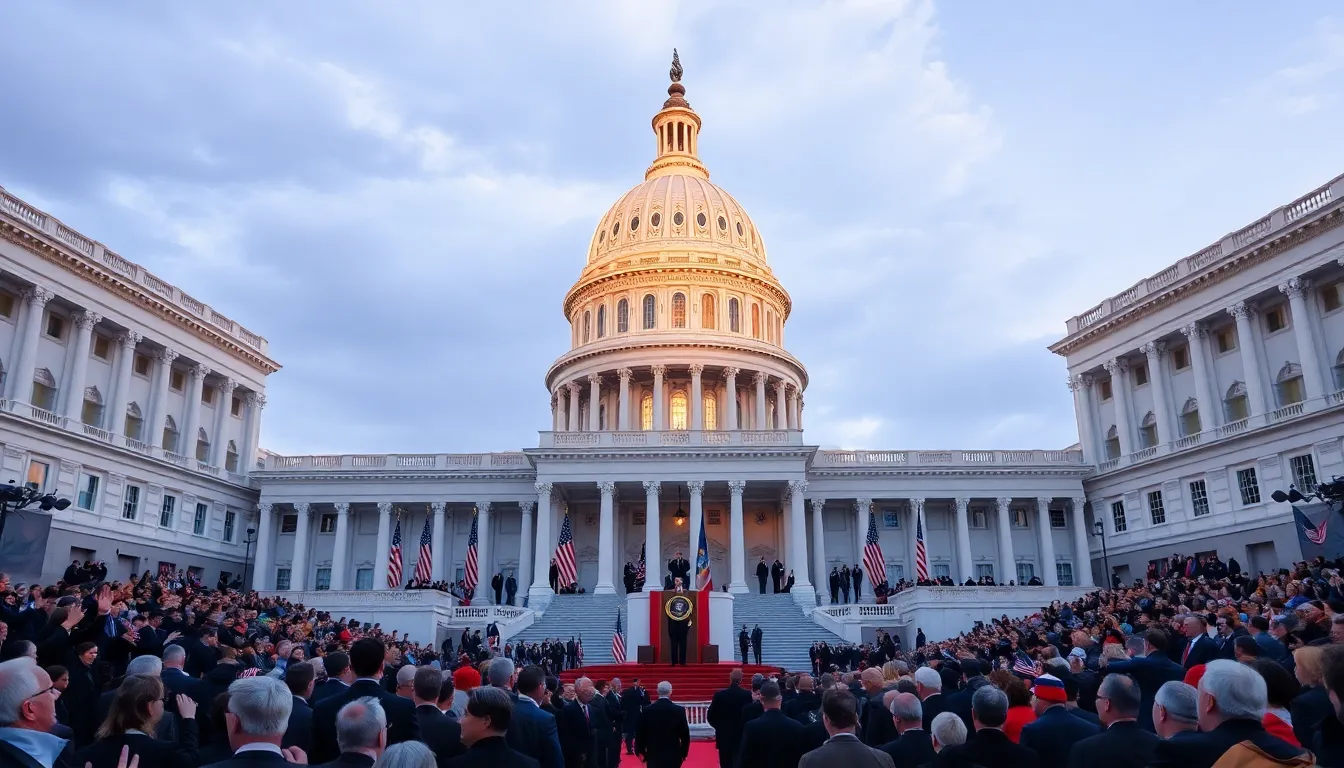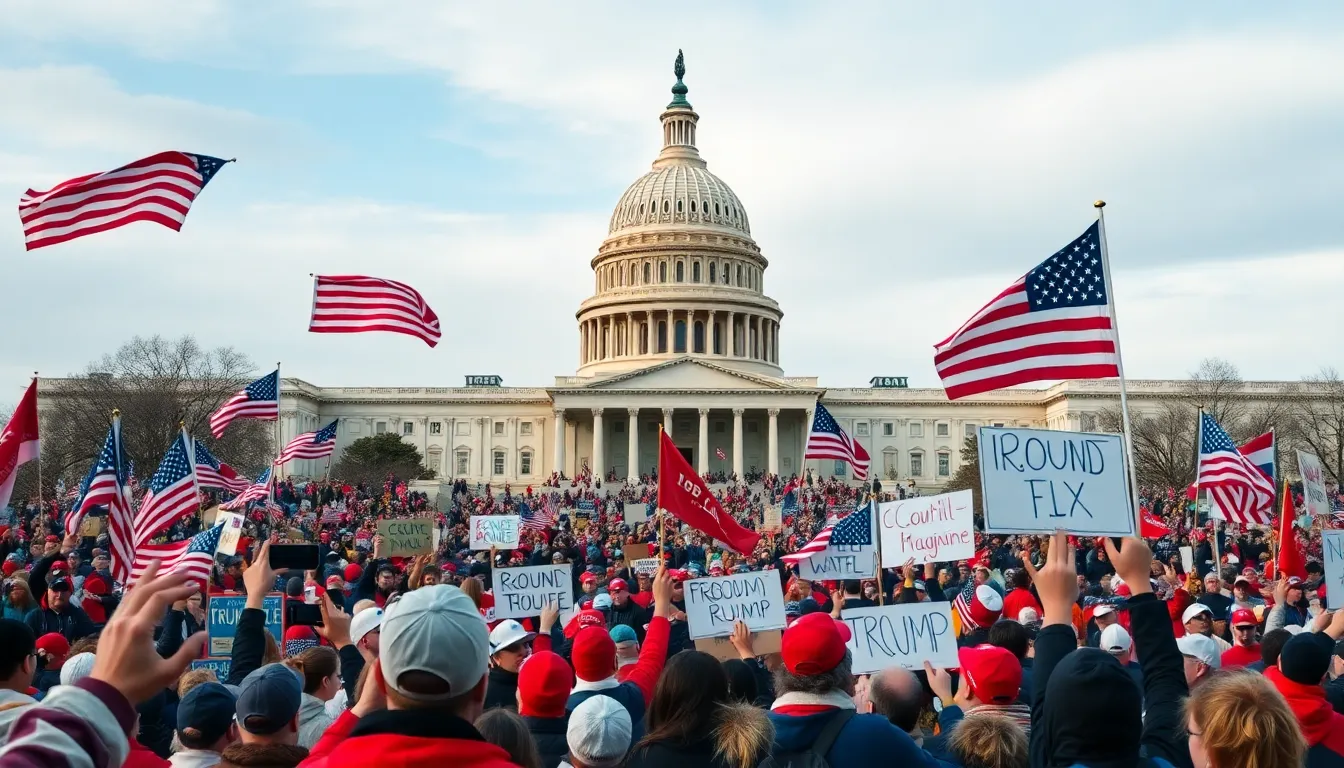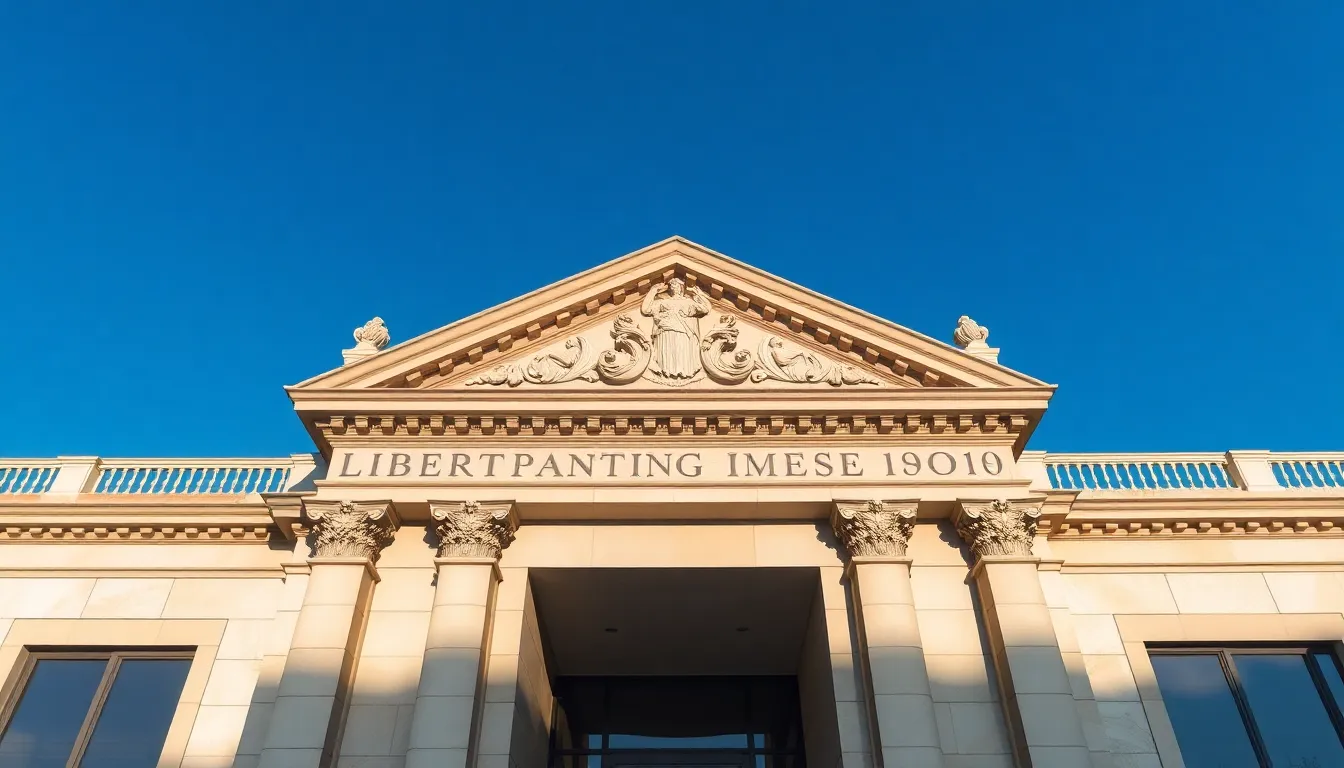Table of Contents
ToggleDonald Trump’s inauguration marked a significant moment in American political history. As the 45th President of the United States, he took office on January 20, 2017. This date is crucial not just for Trump supporters but for anyone interested in understanding the dynamics of modern politics and the impact of his presidency.
Inauguration Day is steeped in tradition and ceremony, symbolizing a peaceful transition of power. It’s a day filled with festivities, speeches, and the promise of new beginnings. For those curious about the specifics of this historic event, knowing the exact day helps contextualize the unfolding of events that shaped the nation over the following years.
Overview of Trump’s Inauguration
Donald Trump’s inauguration occurred on January 20, 2017, marking a pivotal moment in U.S. history. This event fulfilled the constitutional requirement for a peaceful transfer of power between outgoing President Barack Obama and incoming President Trump. Inauguration Day ceremonies included the swearing-in of Trump at the United States Capitol, where he took the oath of office.
Traditionally, the day features various events that celebrate democracy. Notable elements included a parade, musical performances, and officially planned inaugural balls. These festivities reflect the importance of the day’s significance in American governance and public life.
The inauguration also represented a milestone in political dynamics, coinciding with heightened divisions among the electorate. Trump’s win reflected a shift in voter priorities and sentiments, reshaping discussions around issues such as immigration, economy, and foreign policy. This inauguration set the tone for a controversial presidency and prompted widespread engagement and protest from various groups, revealing strong public divisions.
Overall, Trump’s inauguration symbolized more than just the beginning of a presidency; it indicated a transformative period in the political landscape of the United States, influencing policy and public discourse in the years that followed.
Historical Significance

Donald Trump’s inauguration on January 20, 2017, marks a pivotal moment in U.S. history. This date is crucial in understanding the evolution of American politics and the subsequent societal shifts that followed.
The Importance of Inauguration Day
Inauguration Day plays a vital role in American democracy. It symbolizes the peaceful transition of power, an essential hallmark of the nation’s governance. The day is steeped in tradition, featuring the swearing-in ceremony at the United States Capitol, which underscores the commitment to democratic principles. Celebrations, including parades, speeches, and musical performances, foster civic participation and reflection on the governance direction. Trump’s inauguration heightened national attention on political divisions, further amplifying its significance for the American public.
Comparison to Previous Inaugurations
Trump’s inauguration differs markedly from past inaugurations in tone and sentiment. Previous inaugurations, such as those of Barack Obama, focused on themes of unity and hope. In contrast, Trump’s event reflected a more polarized atmosphere, emphasizing themes of nationalism and change. Trump’s presidency began against a backdrop of renewed political activism and dissent, illustrating a shift in voter sentiment. The juxtaposition of these inaugurations highlights the evolving landscape of American politics, with Trump’s ceremony serving as a catalyst for ongoing debates on immigration, the economy, and foreign policy.
Key Details About the Day
Donald Trump’s inauguration as the 45th President of the United States occurred on January 20, 2017. This date marked a pivotal moment in American politics, characterized by a series of formal events and nationwide attention.
Date and Timing
Inauguration Day takes place on January 20 following the presidential election. The swearing-in ceremony occurred at noon, a tradition established by the 20th Amendment of the U.S. Constitution. This timing ensures a clear transition of power from one administration to another, emphasizing the democratic principles governing the nation.
Events and Ceremonies
Inauguration Day featured various events, including a ceremonial oath of office, a celebratory parade, and inaugural balls. The swearing-in ceremony took place at the United States Capitol, led by Chief Justice John Roberts. Following the ceremony, Trump participated in a parade down Pennsylvania Avenue, showcasing military and civilian groups. Inaugural balls followed the day’s events, serving as formal celebrations attended by various guests, including politicians, celebrities, and supporters. The day’s festivities highlighted the blend of tradition, political significance, and public engagement central to the American inauguration process.
Impact on American Politics
Trump’s inauguration marked a pivotal moment in American politics, with immediate reactions reverberating across the nation and long-term effects shaping future political discourse.
Immediate Reactions
Reactions to Trump’s inauguration were swift and diverse. Numerous protests erupted in major cities, reflecting widespread dissent and mobilization among citizens opposed to his policies and rhetoric. Notable events included the Women’s March, which drew millions of participants nationwide the day after the inauguration. Supporters celebrated the inauguration as a triumph for populism, emphasizing economic nationalism and a break from establishment politics. Media coverage underscored the polarization, highlighting stark contrasts in public sentiment.
Long-term Effects
Trump’s presidency sparked significant shifts in American political dynamics. It intensified partisan polarization, as evident in heightened divisiveness among voters and lawmakers. Key issues like immigration, healthcare, and trade became focal points for renewed debate. Trump’s impact on the Republican Party led to a transformation in party ideology, emphasizing populist themes over traditional conservative values. This reorientation influenced midterm elections and the rise of new political figures aligned with Trump’s vision. The long-term effects also fostered a resurgence in grassroots political movements, empowering a wave of activism that reshaped the political landscape well beyond his administration.
Donald Trump’s inauguration on January 20 2017 marked a pivotal moment in American history. It not only signified the beginning of a controversial presidency but also highlighted the deep political divisions within the country. The day’s events showcased a blend of tradition and modern political sentiment that continues to resonate.
As the nation reflects on this inauguration, it’s clear that the impact extends far beyond the ceremonial aspects. The shift in political discourse and the rise of grassroots movements underscore the lasting influence of Trump’s presidency on American governance. Understanding this day provides valuable insights into the evolving landscape of U.S. politics and the ongoing debates that shape the nation today.





